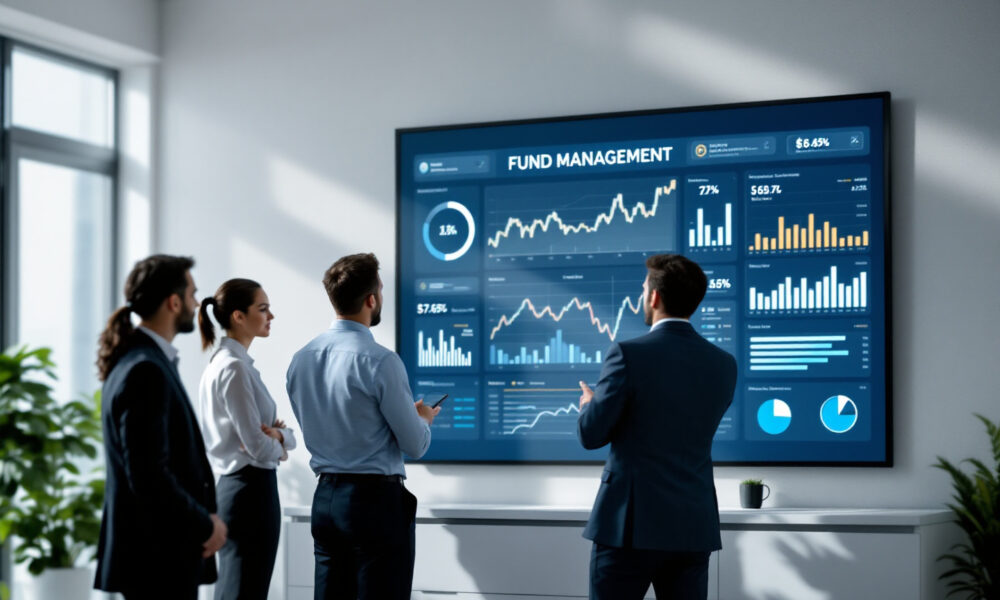
Table of Contents
In today’s rapidly evolving information age, data has become one of the most valuable assets for businesses. Whether it’s for business negotiations, project collaborations, or internal management, the storage, sharing, and security of data are crucial. Virtual Data Rooms (VDRs) have emerged as an efficient and secure data management solution, increasingly becoming the preferred choice for many enterprises. This article will provide a comprehensive understanding of virtual data rooms, covering their definition, functions, advantages, application scenarios, and key considerations for selection, helping you master this digital tool.
Definition of Virtual Data Rooms
A virtual data room is an online data storage and sharing platform based on the internet. It provides a secure and controllable data exchange environment for businesses through encryption technology and permission management. Compared to traditional physical data rooms, virtual data rooms break the limitations of geography and time. Users can access and manipulate the data stored within simply by connecting to the internet. They are widely used across various industries, including finance, law, real estate, healthcare, and technology, playing a significant role in scenarios involving sensitive information and complex transactions.
Main Functions of Virtual Data Rooms
Data Storage and Management
Virtual data rooms offer ample data storage capacity, allowing businesses to upload various types of files, such as documents, spreadsheets, presentations, images, and videos. The system automatically categorizes and indexes files, facilitating quick search and management for users. Administrators can also set different permissions for files, such as read-only, edit, and download, ensuring the security and compliance of data.
File Sharing and Collaboration
Through virtual data rooms, employees within a business or external partners can easily share files. Users can create shareable links, set access permissions and expiration dates, and securely send files to designated recipients. During project collaboration, team members can view and edit files in real-time within the data room, achieving seamless communication and collaboration, thereby improving work efficiency.
Permission Control and Audit Tracking
Virtual data rooms have robust permission control features. Administrators can set detailed permissions for different users or user groups, including access, upload, download, and deletion permissions for folders and files, as well as usage permissions for specific functions. Additionally, the system automatically records all user actions, generating detailed audit logs that facilitate data security monitoring and compliance reviews for businesses.
Security Protection
Data security is one of the core strengths of virtual data rooms. They employ advanced encryption technologies, such as SSL/TLS encryption for data transmission and AES-256-bit encryption for data storage, ensuring the security of data during transmission and storage. Moreover, virtual data rooms are equipped with multiple security protection measures, including firewalls, intrusion detection systems, and DDoS attack protection, effectively defending against external threats. Furthermore, data backup and disaster recovery functions provide additional security guarantees for business data.
Advantages of Virtual Data Rooms
Improved Efficiency
Virtual data rooms break the limitations of traditional data exchange methods. Users no longer need to spend a significant amount of time and effort on the transmission and storage of physical files. File upload, download, and sharing operations are simple and fast, greatly improving work efficiency. At the same time, during project collaboration, team members can share and update files in real-time, avoiding issues of information asynchrony and repetitive work, accelerating project progress.
Cost Reduction
Compared to traditional physical data rooms, virtual data rooms do not require the leasing of physical space, purchasing numerous file cabinets and office equipment, or hiring dedicated personnel for file management and maintenance, thereby significantly reducing operational costs for businesses. Additionally, since virtual data rooms can be accessed anytime and anywhere, employees and partners of businesses do not need to travel frequently or gather in one place, saving on travel expenses and time costs.
Enhanced Security
Virtual data rooms provide comprehensive security protection for business data through strict permission control, encrypted transmission, and security protection measures. Data is stored in professional data centers, maintained and monitored by professional technical teams, offering higher security and reliability compared to internal servers or personal computers of businesses. Moreover, data backup and disaster recovery functions ensure the security and integrity of data in unexpected situations.
Improved Compliance
Virtual Data Rooms (VDRs) play a crucial role in ensuring compliance with various regulatory requirements. They provide a centralized platform where businesses can store and manage sensitive information, ensuring that all data is handled according to legal and industry standards. The detailed audit trails generated by VDRs allow companies to track who accessed what information and when, making it easier to demonstrate compliance during audits. Additionally, VDRs can be configured to meet specific compliance requirements, such as GDPR, HIPAA, or SOX, by implementing strict access controls and data protection measures.
Application Scenarios
VDRs are used in a wide range of business scenarios where sensitive data needs to be shared securely. Some common applications include:
- Mergers and Acquisitions (M&A): During M&A processes, VDRs facilitate the due diligence process by allowing potential buyers, sellers, and their advisors to access and review critical financial, legal, and operational documents in a secure environment.
- Fundraising and Investor Relations: Companies can use VDRs to share financial statements, business plans, and other confidential documents with potential investors, ensuring transparency and trust while maintaining data security.
- Legal Proceedings and Litigation: VDRs are useful in legal cases where sensitive documents need to be shared between parties, such as in discovery processes or during arbitration.
- Project Collaboration: For complex projects involving multiple stakeholders, VDRs provide a secure platform for sharing project documents, plans, and updates, ensuring that all team members have access to the latest information.